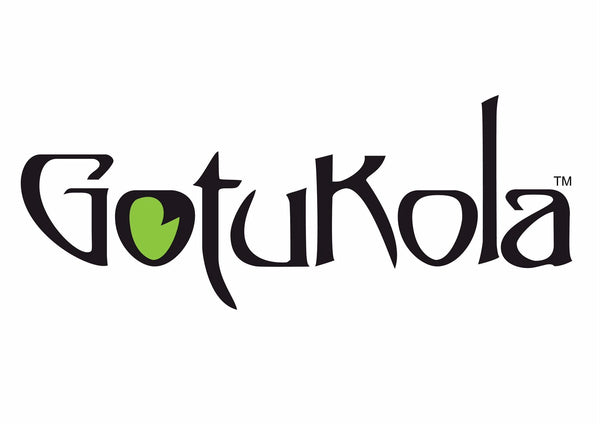Gotu Kola is a herb that has been used in traditional medicine for centuries. It is often used as a supplement to improve cognitive function, reduce anxiety and depression, and promote healthy skin. Recently, it has gained popularity among pregnant women as a way to improve blood circulation, reduce stretch marks, and prevent birth defects. But is it safe to use Gotu Kola during pregnancy? In this post, we’ll take a look at the science behind Gotu Kola during pregnancy to help you make an informed decision.
Gotu Kola has been used for centuries as an herbal medicine to treat various ailments, including poor circulation. During pregnancy, women may experience swelling in their limbs due to poor blood circulation, which is why Gotu Kola is believed to be helpful. Studies have shown that Gotu Kola can improve blood flow and reduce swelling. It has also been found to have anti-inflammatory properties, which can help reduce pain and inflammation.
There is limited research on the effects of Gotu Kola on pregnancy, but some studies have found that it may be beneficial. A study published in the Journal of Ayurveda and Integrative Medicine found that Gotu Kola has a positive effect on the health of the fetus, helping to prevent low birth weight and birth defects. Another study published in the Journal of Ethnopharmacology found that Gotu Kola may help reduce stretch marks during pregnancy.
Despite these potential benefits, it’s important to note that there are some risks associated with using Gotu Kola during pregnancy. Gotu Kola is known to have a mild diuretic effect, which can cause dehydration if consumed in high amounts. It may also interact with certain medications, including blood thinners, and can lead to bleeding if consumed in high amounts. Due to the limited research available on Gotu Kola during pregnancy, it’s recommended that pregnant women consult with their healthcare provider before using it.
Gotu Kola is also known to contain triterpenoids, a compound that can induce liver toxicity in high doses. Pregnant women have an increased risk of liver damage due to the hormonal changes that occur during pregnancy, which is why it’s important to consult with a healthcare provider before using Gotu Kola.
A Guide to Its Benefits During Pregnancy
Gotu kola is a plant that has been used in traditional medicine for centuries to treat a range of health conditions. Recently, its potential benefits for expecting mothers have started to gain attention. In this guide, we'll delve into the effects of gotu kola on pregnancy, including the potential benefits and risks associated with its use.
Potential Benefits of Gotu Kola During Pregnancy
Gotu kola may offer several benefits to expecting mothers. It has been used traditionally to reduce anxiety and improve overall well-being during pregnancy. Additionally, some studies have suggested that taking Gotu Kola during the second and third trimesters can reduce swelling – a common problem during pregnancy. Gotu Kola may also help reduce fatigue, boost immunity, and support healthy skin.
Risks Associated with Gotu Kola Use During Pregnancy
While there is limited research on the effects of gotu kola during pregnancy, it is generally considered safe when taken in recommended doses by pregnant women without any underlying health problems or other medications. Nevertheless, it is always best to speak with your healthcare professional before using any new supplements or medications while pregnant or breastfeeding. Additionally, there are certain forms of gotu kola (such as extracts) that may not be suitable for pregnant women due to their higher strength and concentration.
Recommended Dosage of Gotu Kola During Pregnancy
The recommended dosage of gotu kola for pregnant women may vary depending on the form you are taking (e.g. capsules versus extracts). Generally speaking, most experts suggest starting with a low dose and increasing gradually as needed until you find an effective dose for your individual needs. For example:
Capsules
The recommended dose for gotu kola capsules is usually around 1 capsule (1,000 mg) taken one to three times a day with food. This dosage can be adjusted based on the specific condition you are treating and your individual needs.
Extracts
The recommended dosage of a 4:1 liquid extract is approximately 30 drops taken two to three times a day or 400–500 mg taken three times per day if using dried extracts.
Teas
For gotu kola teas, it is usually recommended to steep 1-2 teaspoons of dried leaves per cup of water for 5-10 minutes before drinking.
It's important to note that these recommendations are not meant as medical advice – they should only serve as guidance; always talk with a healthcare professional before taking any new medications or supplements while pregnant or breastfeeding.
Research Sources
When considering any supplement during pregnancy (including gotu kola), it’s important to research thoroughly before making any decisions about what’s best for you and your baby’s health! Here are some reputable sources you can use when researching how gotu kola might benefit during pregnancy:
—National Center for Complementary & Integrative Health (NCCIH)
—Memorial Sloan Kettering Cancer Center (MSKCC)
—PubMed
Conclusion
Pregnant women should consider taking Gotu Kola as part of their regular health regimen. It has a variety of holistic and medical benefits that could improve the overall health of both mother and baby. With its ability to improve circulatory health, boost energy levels, reduce inflammation, increase collagen production, provide antioxidant protection, and more, it can be an essential remedy for any expecting mother who is looking to maximize the well-being of their pregnancy journey. While further research needs to be done in order to definitively prove the science behind these claims even more so than before, there are plenty of reasons why it may be worth giving Gotu Kola a try while expecting!
Check out for more interesting topics about Gotukola @gotukola.

